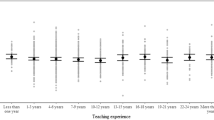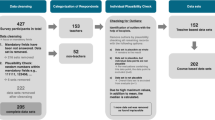Abstract
Current developments in higher education strongly indicate that the way ahead in many disciplines is much closer co-operation between academia and industry. There is growing demand that recognition should be given to learning, irrespective of the environment in which it occurs.
This article reflects on what are deemed to be essential components of a degree, and considers how they might be transformed into forms suitable for demonstration in the work environment. The discussion is supported by findings of a survey carried out in conjunction with a development - Structured Industrial Practice Studies - which integrates academic learning and learning in the work environment for full-time students. The findings, however, are of relevance beyond the particular model of learning and mode of attendance. There appears to be potential for achieving in the workplace aspects of courses which, in recent times, have been the prerogative of higher education establishments. However, such potential is variable between working environments and is dependent on higher education providers adapting to different structures in delivery.
Similar content being viewed by others
References
Ashworth, P.D. and Saxton, J. (1989). Experiential Learning during Sandwich Degree Placements and the Question of Assessment. Sheffield papers in Educational Management 2. Sheffield: Centre for Education Management and Administration, University of Sheffield.
Ashworth, P.D. and Saxton, J. (1990). ‘On competence’, Journal of Further and Higher Education 14(2), 3–25.
Billett, S. (1993). Learning is Working when Working is Learning: A Guide to Learning in the Workplace. Queensland: Centre for Skill Formation Research and Development, Griffith University.
CNAA. (1991). Development of Placement and Assessment Procedures in Supervised Work Experience. Project Report 31, London: CNAA.
Coates, H. and Wright, J. (1991). The Integration of Work Based Learning with Academic Assessment: A User's Guide. Coventry: Coventry Polytechnic.
Committee of Vice-Chancellors and Principals (1995). ‘A strategy for vocational higher education’, Competence and Assessment 29, 16–32.
Davidson, G. (1995). ‘The regional certificate in work-related education in Kent’, Higher Level Skills Bulletin 4, 2–3 Sunderland: Higher Education Support for Industry in the North/Employment Department.
Dearden, G. (1989). Learning While Earning: Learning Contracts for Employees. London: Learning from Experience Trust.
Department of Education and Science (1991). Higher Education: A New Framework. HMSO Cmd No 1541.
Employment Department (1992). Learning Through Work. Sheffield: Employment Department.
Employment Department (1994a). Higher Education Developments: The Skills Link 2. Sheffield: Employment Department.
Employment Department (1994b). Labour Market and Skill Trends: 1995/96. Nottingham: Skills and Enterprise Network.
Employment Department (1995). A Vision for Higher Level Vocational Qualifications. Sheffield: Employment Department.
Evans, N. (1993). ‘Wider access through work based learning and employment’, Journal of Access Studies 8(1), 106–110.
Engineering Council (1995). Competence and Commitment. London: The Engineering Council.
Flint, C. (1992). ‘The rover's return to learning’, The Higher 29 May 1992.
Forrester, K., Payne, J. and Ward, K. (1995). ‘Lifelong education and the workplace: a critical analysis’, International Journal of Lifelong Education 14(4), 292–305.
Kemp, I.J., Eastwood, A., Seagraves, L. and Blair, L. (1992). Structured Industrial Practice Studies: an approach to the integration of academic and work-based learning. Glasgow: Glasgow Polytechnic/Employment Department.
Kemp, I.J., Eastwood, A., Fenoughty, T., Foster, K., Morning, C. and Seagraves, L. Structured Industrial Practice Studies Project: Final Report. Glasgow: Glasgow Caledonian University/Employment Department. In press.
Kemp, I.J. and Seagraves, L. (1993). Structured Learning in the Workplace: The Industry Perspective. Glasgow: Glasgow Caledonian University/Employment Department.
Hale, R. (1994). Foreword to Proceedings of EHE Directors' Conference, in Hale, R. and Pope, N. (eds.), EHE - A Vision for Higher Education. Edinburgh: University of Edinburgh.
Harding, G. and Kington, B. (1989). ‘Industry and Higher Education: A Strategy for Partnership in Ball and Higgins H’, Higher Education into the 1990s. Milton Keynes: SRHE/OU.
Higher Education Quality Council (HEQC). (1994). Choosing to Change - Extending access, choice and mobility in higher education. London: HEQC.
Hughes, C. and Tight, M. (1995). ‘The myth of the learning society’, British Journal of Educational Studies XXXXIII, 3, 290–304.
Lyons, F. (1993). The Partnership Project and The Partnership Programme. Portsmouth: University of Portsmouth/Employment Department.
MacFarlane, B. (1993). ‘The results of recession: students and university degree performance during the 1980's’, Research in Education 49, 1–10.
Marshall, I. (1991). ‘Student driven learning contracts’, in Adams, A. Brewer, M. Marshall, I. Tolley, G. and Whelan, T. And It Must Count: Work Based Learning for Academic Credit in Higher Education, London: Learning from Experience Trust.
Naish, J. (1995). Auditing, Accrediting and Assessing Employees' Work Based Learning. National Centre for Work Based Learning. London: University of Middlesex/Employment Department.
NCVQ. (1993). GNVQs - Core Skills Units - Communication, Application of Number, Information Technology for programmes starting from September 1993, London: NCVQ.
NCVQ. (1995). GNVQs at Higher Levels: a consultation paper. London: NCVQ.
Otter, S. (1992). Learning Outcomes in Higher Education. Sheffield: UDACE/Employment Department.
Otter, S. (1994). Accreditation - Issues Arising from Work-based Learning Projects. Sheffield: Employment Department.
Pedler, M., Burgoyne, J. and Boydell, J. (1991). The Learning Company: a strategy for sustainable development. London: McGraw-Hill.
Randall, J. (1995). ‘National vocational qualification in higher education - A possible model’, Competence and Assessment 29, 10–15.
Reeve, F., Gallacher, J., Sharp, N., Osborne, M., Land, R., Whittaker, R., Dockrell, R. and Neal, P. (1995). Developing Employment-based Access to Learning (DEAL) Final Report. Glasgow: Glasgow Caledonian University/ University of Stirling/Napier University.
Stephenson, J. and Laycock (1993). Using Learning Contracts in Higher Education. London: HEC/Kogan Page.
Scottish Office Education Department (1994). Higher Still - Opportunity for All. Edinburgh: HMSO.
SCOTVEC. (1990). Introducing Core Skills - A Guide for Teaching Staff. Glasgow: SCOTVEC.
Tight, M. (1991). Higher Education - A Part-time Perspective. Milton Keynes: SRHE/OU.
Tolley, H. and Day, C. (1992). How to Accredit Work-based Learning: A Report of the Assessment and Accreditation of Work-based Learning Project within Academic Programmes in Higher Education. Sheffield: Employment Department/Universities of Nottingham and Sheffield.
Winter, R. (1994). ‘The problem of educational levels, Part II: A new framework for credit accumulation in higher education’, Journal of Further and Higher Education 18(1), 92–106.
Author information
Authors and Affiliations
Rights and permissions
About this article
Cite this article
Seagraves, L., Osborne, M.J. & Kemp, I.J. Are academic outcomes of higher education provision relevant to and deliverable in the workplace setting?. High Educ 32, 157–176 (1996). https://doi.org/10.1007/BF00138394
Issue Date:
DOI: https://doi.org/10.1007/BF00138394




